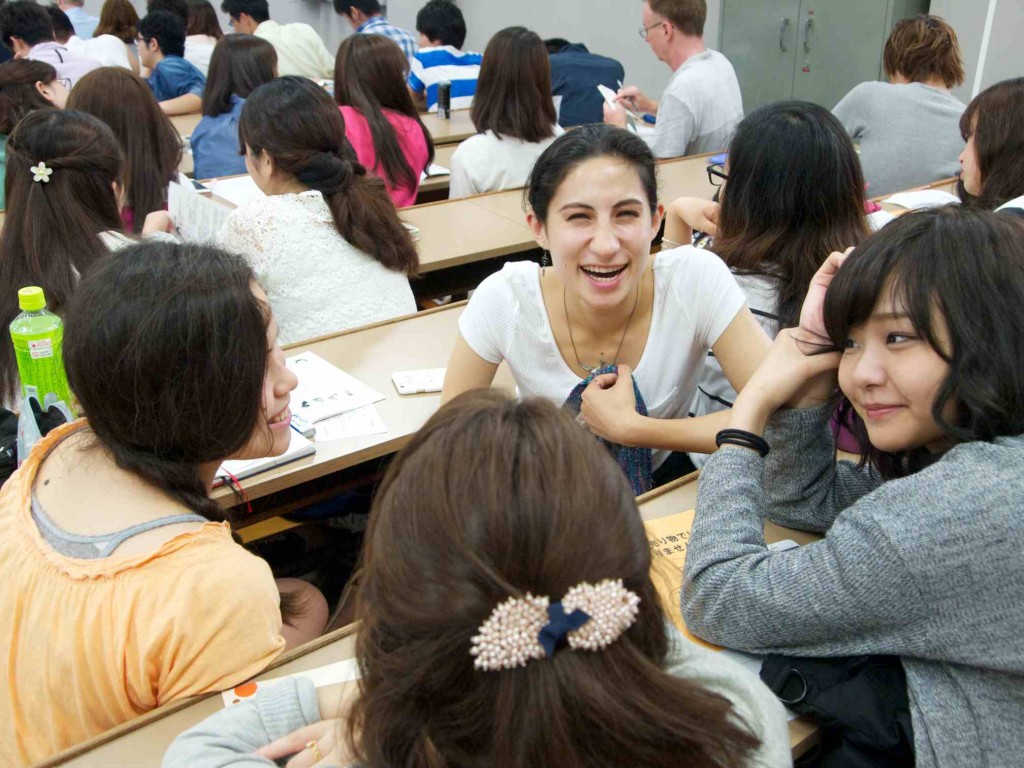I announced at the beginning of our seminar that our research on controversial issues would be leading up to the formation of a unique, new NGO that’s concerned with promoting some aspect of your issue. In preparation for this, in the 2nd or 3rd week of class, everyone researched different NGOs related to an environmental issue and told the class about them. We were introduced to a wide variety of NGOs then. If you would like to see more models of NGOs/ NPOs that are working in your topic area, you can try the NGO-related links at JAPAN LINKS, Idealist, or NGO Links. You can also familiarize yourself with the work of NGOs by accessing a website that provides resources that NGOs can make use of (for example, how they can do networking, maintain a website, or do effective fund raising).
You can view controversial issue presentations from former students in this course by going to HERE. However, I have MUCH higher expectations for you. Those presentations were done quite a few years ago and I think you’ve been exposed to more of the work of NGOs than those students, so you can do a better job making your own.
Here are the points you’ll need to cover when you present your unique NGO, in addition to summarizing your main findings through your research (i.e., efforts to answer the 30 research questions that you created):
- A “catchy” name for the group.
- The specific issue the group deals with.
- The group’s mission statement.
- Goals that the group strives to achieve.
- Concrete ways that the NGO tries to achieve its goals. For example, specific projects that it conducts.
- How the group is different from others in its goals or methods.
- Groups with which it networks (i.e., cooperates with on projects or activities).
- How it keeps itself running (i.e., by fund-raisning activities, donations, etc.).
- If the group does fund-raising activities, you’ll need to describe them.
- How it recruits new members to the group.
- How it makes the media interested in its activities.
- Why this is a group that your classmates, and others, would be interested in joining.
You will have a maximum of 20 minutes for your group’s presentation, which will be strictly timed…unlike previous presentations. You can’t go overtime or there’s a danger that your classmates won’t have time for their presentations.
- In the first few minutes of your presentation, you should explain the results of the survey you conducted about your controversial issue, that was meant to help you see what sort of NGO people might be interested in supporting. Do it in a concise and efficient way using charts or graphs, and tell us your INTERPRETATIONS of the data. Also, tell us how the results help to inform your unique NGO.
- Imagine that the purpose of your presentation will be to recruit volunteers and donors to your cause, so you will have to engage your audience’s interest and appeal to their hearts and minds. If you bore them, they may get “turned off” by your issue (and NGO) itself.
You will also need to make a promotional video for your NGO (3-5 minutes). Be prepared to turn in your video by putting it on a flash USB memory stick or a CD ROM.
You will get extra credit if you create a website (by using Google Sites, for example) or social networking site for your NGO as well. You may use Facebook to create a social networking community page for your NGO. As an example of a Facebook community page you may refer to one that I created for the Japan Association of Language Teaching Lifelong Language Learning Special Interest Group.
The grade that you get for your presentation will be based on…
- the originality and uniqueness of the NGO you create.
- how well you incorporate the “research” you did on your controversial issue throughout the semester in the presentation.
- your ability to engage the interest of your audience and gain their attention.
- giving your presentation without the use of written out notes.
Here are some things that you must do in addition to the presentation:
- Read the blog entries of your classmates and give feedback to them by making, at least, one comment on EACH of the seven blogs. Your responses should be 100 words or more and express your views on the issue or give your classmates suggestions for further research. The deadline for this feedback will be by July 23rd.
- Have you been using Web (and other) resources to investigate the 30 research questions that you and your partner(s) came up with related to your controversial issue and posting your findings on your blog? A requirement of the course is to do that on a weekly basis. Some of you really need to make up for lost time since you’re behind on this. Remember that you must use a minimum of two sources to answer each of your questions in order to cross-reference the facts. Refer to this posting as an good example of how a research question can be researched, the results summarized and the sources cited: http://save-our-lovely-animals.blogspot.jp/2014/07/18.html. You’ll have until July 23rd to finish posting the fruits of your research along with the citations showing your sources.
- Have you been using Citation Machine to carefully cite the sources for all the information you’ve summarized in your blog entries so far? You should have been doing this for each of the entries you post every week. You may cite the source in either MLA or APA style, BUT be consistent.
- By July 23rd, you will have to post a detailed summary of your survey results like this one:http://save-our-lovely-animals.blogspot.jp/2014/07/survey-summary.html.

